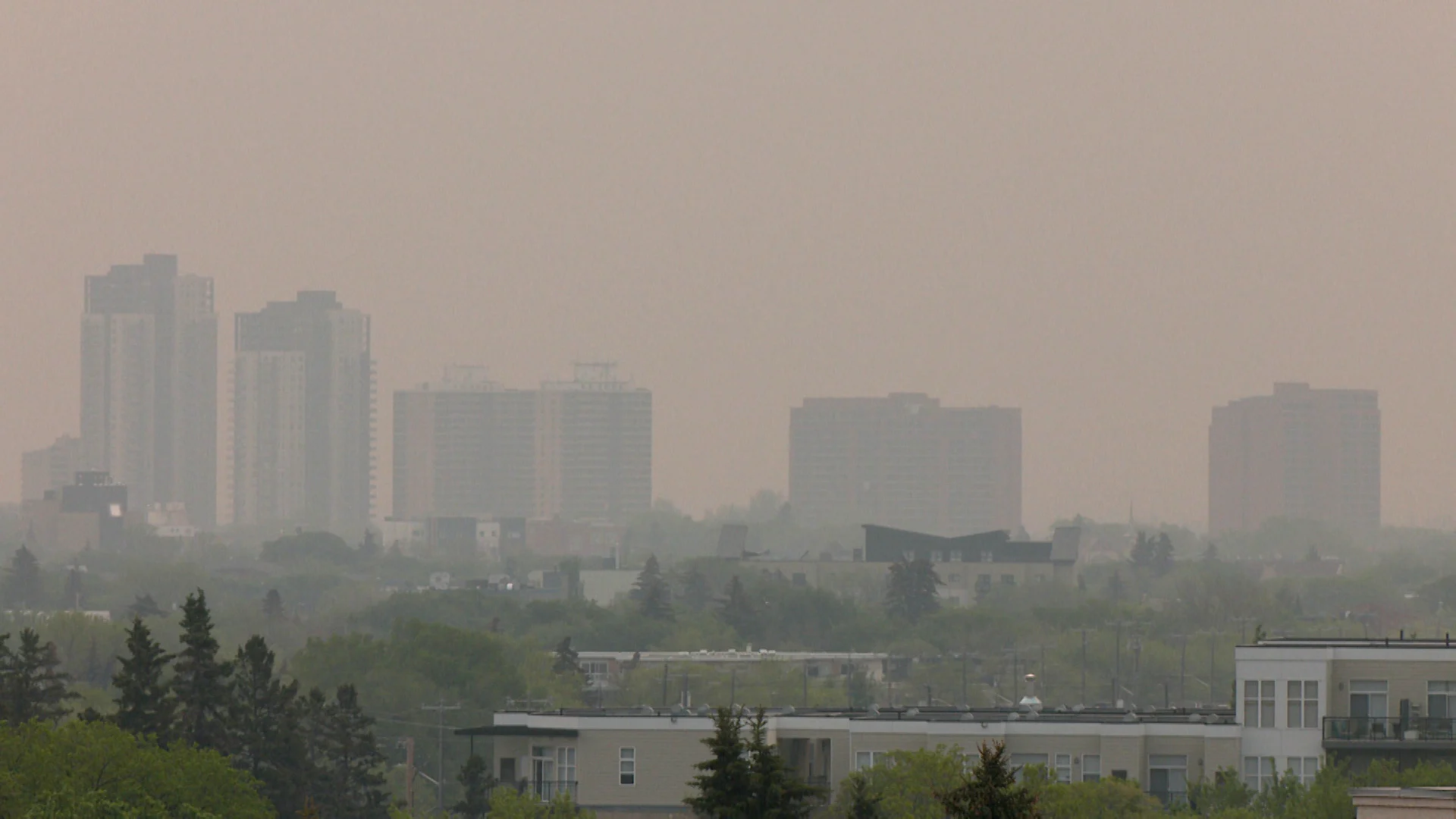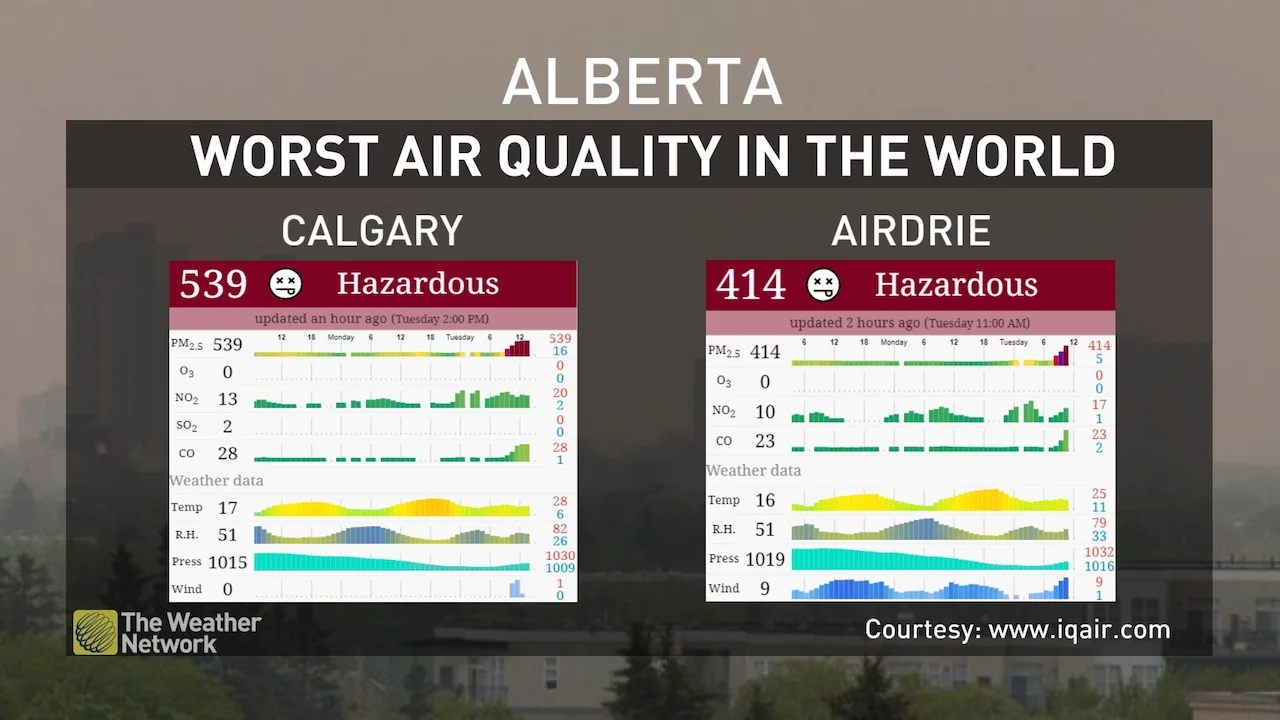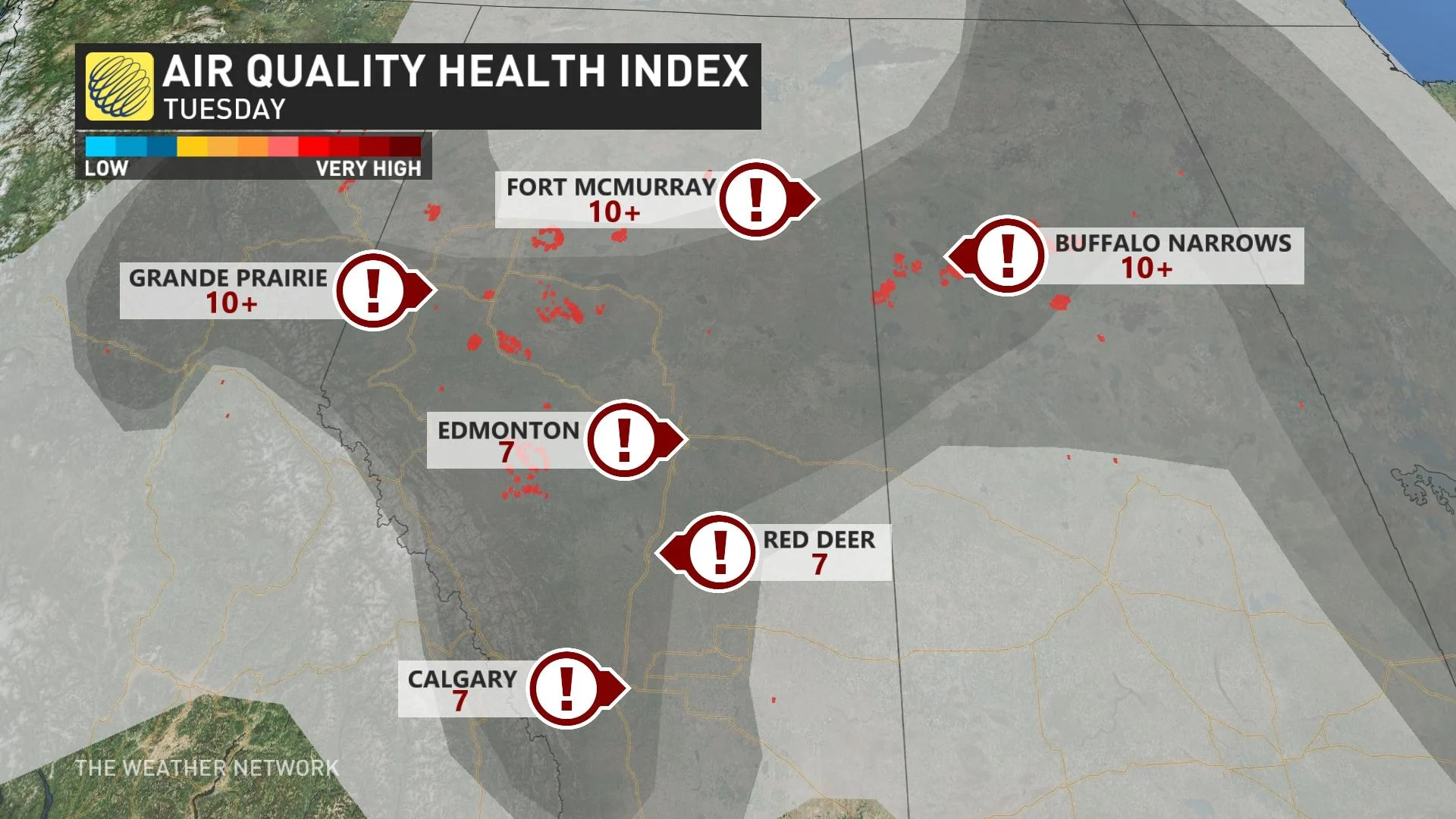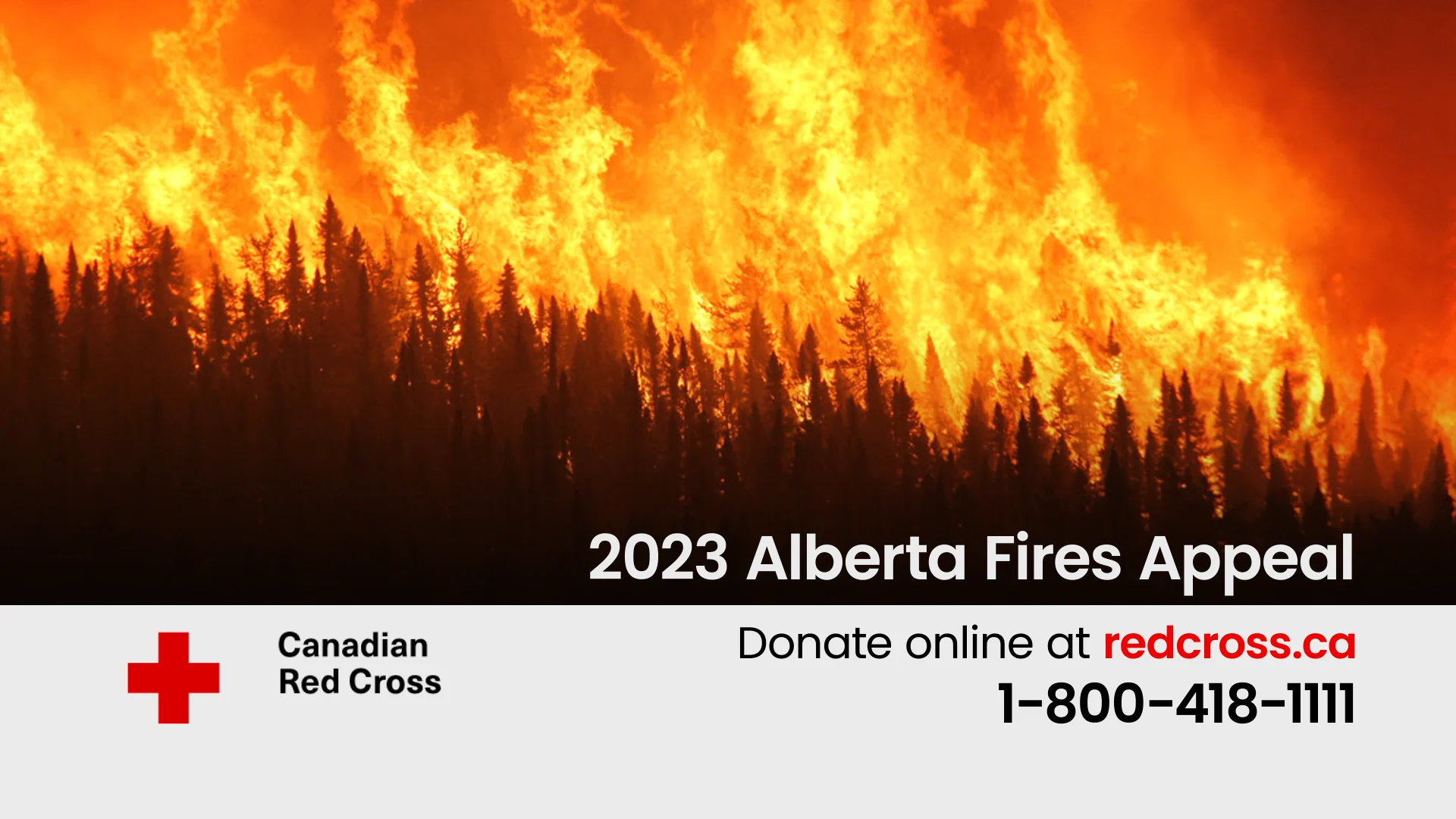
Alberta air quality among worst in the world due to wildfire smoke
Smoke from the wildfires has dramatically dropped the air quality readings in Alberta, bringing hazardous and very unhealthy levels on Tuesday. Special air quality statements are in place
The ever-changing, grim wildfire situation in Alberta has resulted in dangerous air quality across the province, thanks to the smoke from the blazes.
In fact, on Tuesday, the province's air quality was among the worst in the world at several points during the day, according to multiple sources such as World Air Quality Index and IQAir. Environment and Climate Change Canada (ECCC) has issued special air quality statements for much of Alberta.
Visit The Weather Network's wildfire hub to keep up with the latest on the active start to wildfire season across Western Canada.

Alberta's extreme May fire conditions were recently fanned by a wind shift, resulting in air quality readings that were among the planet's worst in Calgary and throughout the province.
Numerous air quality indicators identified Alberta as having New Delhi, India-level air quality. As of Tuesday afternoon, Calgary's readings were nearly 500 µg/m3 (PM 2.5), an extremely hazardous air quality reading that was more than 40 times lower in the morning.
On Wednesday, low-level smoke will pool across the province as a northerly wind pushes smoke down Highway 2. Smoky air is also spreading across the B.C. Interior toward the South Coast, plus significant smoke concentrations are affecting Saskatchewan, Manitoba, and the N.W.T.
Areas that are downwind from these fires will have some of the planet's worst air quality over the days to come, and there are no indications of any significant pattern changes to mitigate the smoke.

It should be noted that air quality and visibility due to wildfire smoke can fluctuate over short distances and can vary considerably from hour to hour.
Wildfire smoke can be harmful to everyone’s health even at low concentrations. Continue to take actions to protect your health and reduce exposure to smoke.
People with lung disease (such as asthma) or heart disease, older adults, children, pregnant people, and people who work outdoors are at higher risk of experiencing health effects caused by wildfire smoke.
ECCC has some helpful tips for Albertans affected by the smoke.

Stop outdoor activities and contact your health-care provider if you or someone in your care experiences shortness of breath, wheezing (including asthma attacks), severe cough, dizziness or chest pains. Stay inside if you are feeling unwell and experiencing symptoms.
Keep your indoor air clean. Keep your doors and windows closed if the temperature in your home is comfortable.
Use an air purifier with a high-efficiency particulate air (HEPA) filter in a room where you spend a lot of time. Avoid air purifiers that produce ozone. Check the filter and change it if required.
With files from Tyler Hamilton, a meteorologist at The Weather Network, and Nathan Howes, a digital reporter at The Weather Network.











